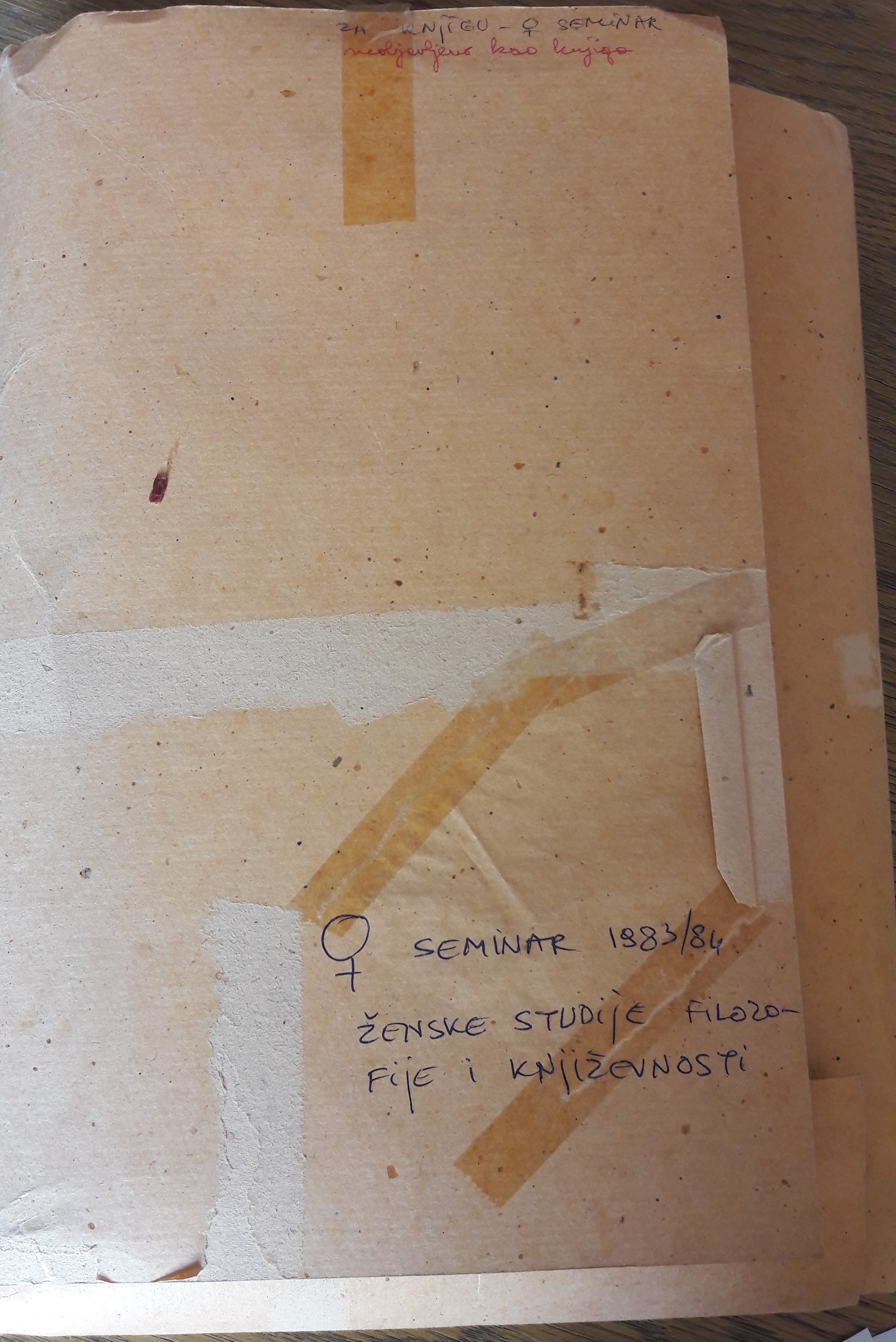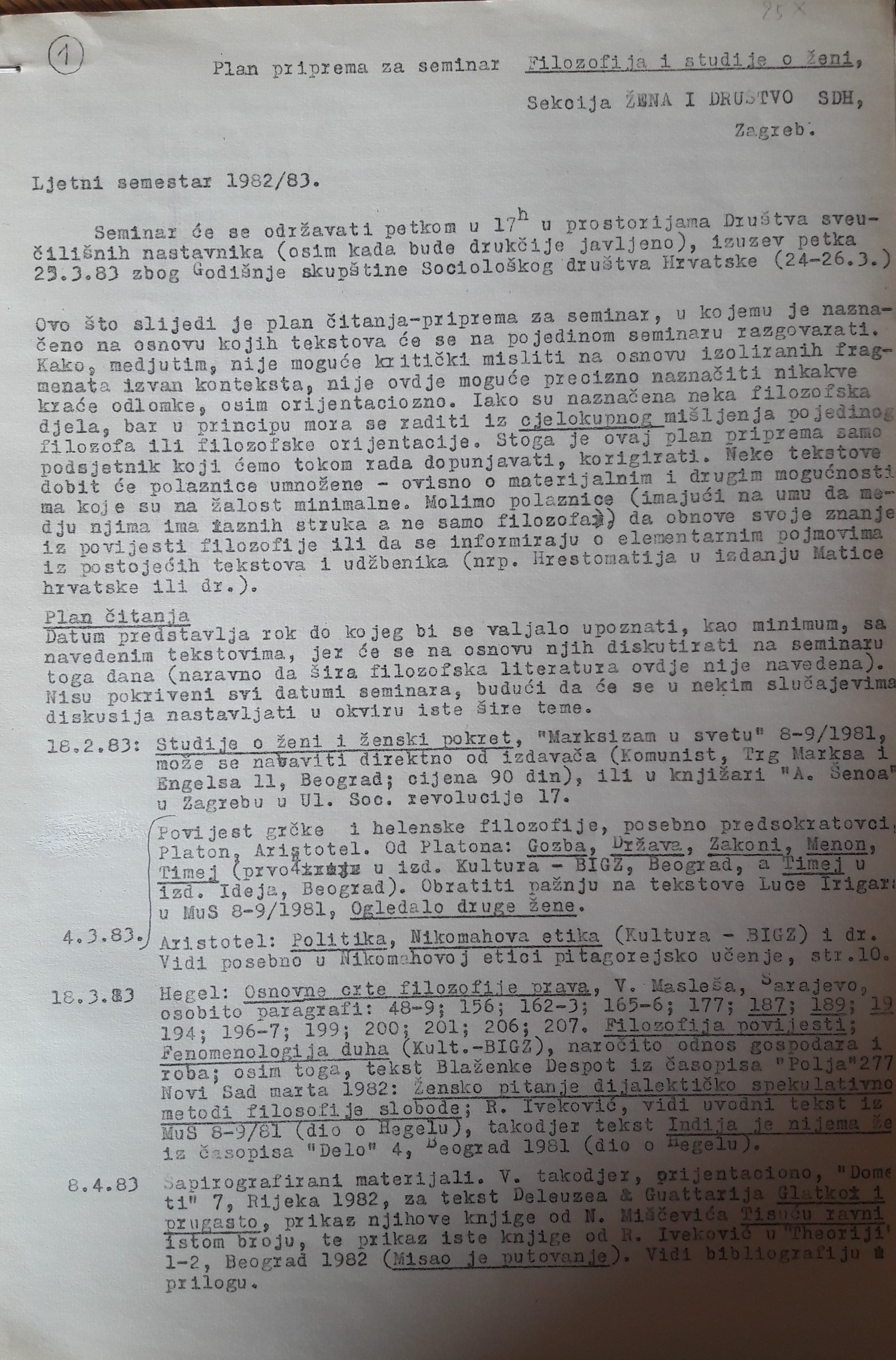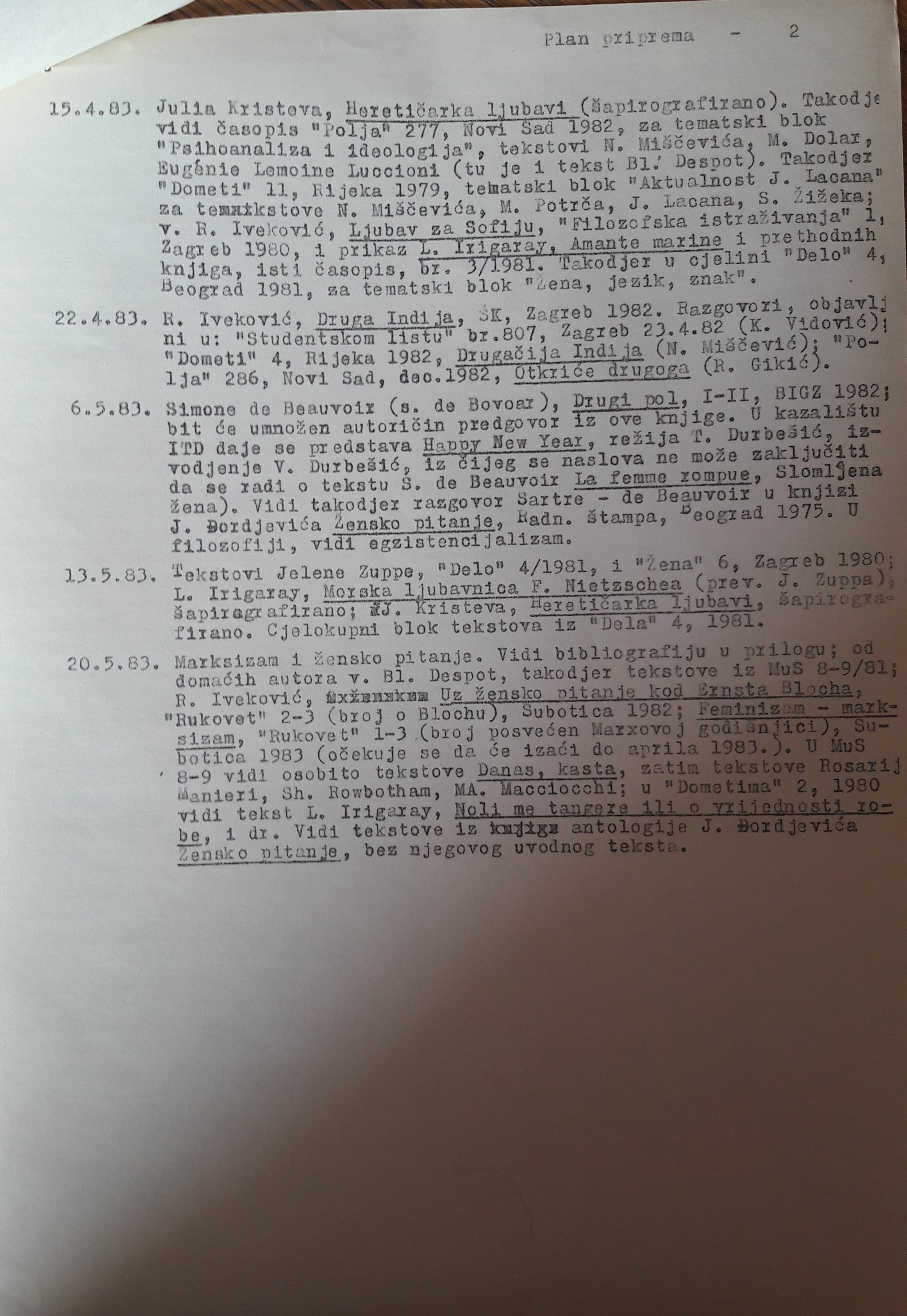Feministička zbirka "Žena i društvo"



Hely
-
Zagreb Dolac 8, Croatia 10000
Térképen
Források nyelve
- Horvát
Gyűjtemény neve
-
Women and Society Feminist Collection
Gyűjtemény története
Gyűjtemény leírása
Gyűjtemény tartalma
- kéziratok (személyes dokumentumok, naplók, feljegyzések, levelek, vázlatok, stb.): 10-99
Gyűjtemény gondozója
Tulajdonos
További fontos személy
- Pešut, Jasminka
Gyűjtőterület
- nemzetközi
Téma
Alapító
Alapítás ideje
- 1983
Alapítás helye
-
Zagreb, Croatia
Térképen
Kapcsolódó alkotó
Gyűjtő
Támogatás
Fontos esemény
Hozzáférés típusa
- csak előzetes egyeztetéssel látogatható
Publikáció
-
Despot, Blaženka. 1987. Žensko pitanje i socijalističko samoupravljanje (The Woman's Question and Self-Management). Zagreb: Cekade.
Katunarić, Vjeran. 1984. Ženski eros i civilizacija smrti (The Female eros and the civilization of death). Zagreb: Naprijed.
Hálózati tagság
A bejegyzés szerzői
- Bencetić, Lidija
Hivatkozások
Pešut, Jasminka, interview by Bencetić, Lidija , April 24, 2018. COURAGE Registry Oral History Collection
2020-01-07 17:29:55
